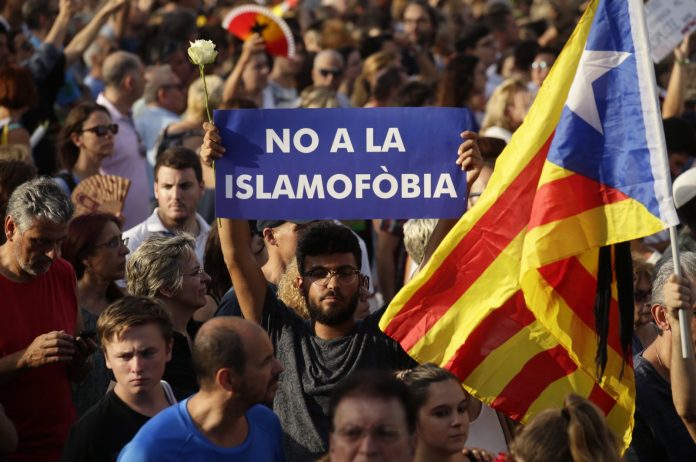Sergio Gracia, President of CINVED, appealed to Spanish society for restraint amid rising anti-Muslim rhetoric, Anadolu Agency said.
Anti-Muslim rhetoric in Spain
One official said Madrid faces that there are calls to expel Muslims, calling them “invaders” on social media, referring to historical events such as the fall of Andalusia and the Reconquista. In the meantime, Gracia, president of the Centre for Research on the Far-Right (CINVED) in Spain criticised the anti-Muslim rhetoric. He stated that certain groups use the concept of the “Reconquista” and related historical events to justify the recovery of Spanish lands from Muslims and their expulsion.
You can read on social media references such as expel the invader or you can hear a politician of extreme right talk about Troy horses, Islamisation or that demographics are changing in Spain – referring to the construction of religious centres such as mosques, as Sergio Macian and Rocio de Meer have done.
They “usually refers to historical figures like Don Pelayo or El Sid, also using terms like reconquer, making reference to battles such as the battle of Covadonga, the battle of Alarcos, the battle of las Navas of Tolosa or the takeover of Granada. They usually give you key dates alluding to the battles that they carried out at the local level, such as Malaga 1487 or Alcala 1247. These are two examples of social movements that have been in Spain working and today they are under the umbrella from a far-right political party as Hacer Nacion,” according to him.
According to him, Muslims in the Iberian Peninsula faced a choice between Christianisation, death or exile during the Reconquista. Gracia revealed that Moriscos came under pressure to consume pork and wine during this period. In addition, they encountered prohibitions against fasting and prayer, but they used various means to conceal themselves. In addition, despite ineffective evangelisation, they resisted imposed practices during significant life events. He said:
Moriscos were the descendants of the Spaniard Muslims who had remained in the Iberian Peninsula after the fall of the Nasrid kingdom of Granada in 1492 and who were forced to choose between conversion or exile. Not wanting to sacrifice either his land or his faith, the vast majority converted to Christianity but clandestinely maintained their fidelity to Islam. In 1502, an edict was published that required all subjects of the crown to baptize – were they Christians or not. Later, other prohibitions that could be identified with Islam were carried out – like the way of dressing or the use of the Arabic language. After the expulsion decree, they had no other option but to hide their convictions.
Gracia stressed, despite the expulsion of the Moriscos, the historical artefacts and cultural elements left behind by the Muslims remain part of Spain’s cultural heritage. Besides, the use of figs and almonds certain recipes, dances, the Morisco baths in Ronda and the narrow streets of the period are common throughout Spain, especially in Andalusia.
Spain in European Parliamentary Elections
In the Spanish stage of the European Parliament (EP) elections, the new national party The Celebration is Over astonished many by winning 4.6 per cent of the vote and three MEPs, upsetting the political balance. The party, led by 34-year-old Luis Perez, won around 800,000 votes and sent three MEPs to the European Parliament. Perez, known for his strident anti-Islam and anti-immigrant rhetoric, said the party had come to destroy the political system in Spain. He also called labelled all illegal immigrants “criminals” and refused to live in Brussels as an MEP.
“Spain has become a country of criminals, corrupt people, mercenaries, pedophiles and rapists, and this is a sad situation. Many Spaniards suffer from this every day.”
